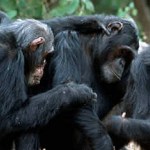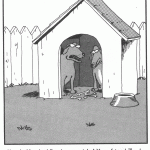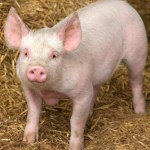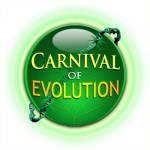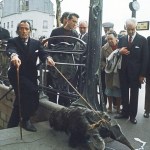
If there is one book that every human should read, it is The Invisible Gorilla, by Chris Chabris and Dan Simons.
I suppose that's a pretty bold statement to make. Let me explain. As a student of psychology, and as someone who studies and writes about the mind, I am overwhelmed with the general perception among the lay public that "social science findings often reaffirm or echo what common sense observations tell us." But the truth is that common sense observations often lead us astray. We have very little insight into the way our minds actually operate. And the thing is, this is likely a…
In most zoos and animal parks, polar bears (ursus maritimus) attract such a disproportionate amount of attention that they are referred to in the industry as "charismatic megafauna," or in other words, "really cool animals." Perhaps it is because it is especially rare for the average zoo-goer to happen upon a polar bear in the wild, or because they live in such an inhospitable environment. Perhaps it's just because polar bears are so damn cute.
Maybe we should just blame Coca-Cola.
Whatever the reason, psychologists Michael J. Renner and and Aislinn L. Kelly of West Chester University in…
"The problem is that most bears don't like to get their ears wet." That is the problem, isn't it?
Another awesome video courtesy of the folks at BBC Earth "Life Is". Narrated by (who else?) David Attenborough.
That animals help each other is far from a new observation, but it's puzzling nonetheless. If all that matters is survival of the fittest, shouldn't animals refrain from anything that fails to benefit themselves? Why help another get ahead? There are two main theories: First, that such behavior evolved to help kin and offspring, hence individuals who are genetically related. This promotes the helper's own genes as well. This "blood is thicker than water" theory explains, for example, the sacrifice of bees, who give their lives for their hive and queen when stinging an intruder. The second…
Here are my Research Blogging Editor's Selections for this week:
In a post that is sure to stir up some controversy, The Neurocritic discusses a recent paper that failed to find an association between personality (which appears to be highly heritable) and specific genes.
Dr. Dan Simons of the Invisible Gorilla blog writes about a pervasive cognitive illusion in which "we easily mistake surface understanding for deep understanding" - the illusion of knowledge.
When it comes to language acquisition, is the mind more like a spreadsheet or a search engine? Melody Dye of Child's Play offers some…
Sometime late Saturday night, it seems I agreed to shepherd (cat-herd?) a new blog carnival. It all started when I noticed that people seem to be blogging about poop a lot. It was pointed out that some blog about urine. Carin Bondar wanted to add barf and blood to the mix.
So, Bora and I are masterminding THE CARNAL CARNIVAL.
Click on over to the Carnal Carnival blog to see the schedule, volunteer to host, and pick a topic.
Different dog growls mean different things, right? Probably. But can you tell the difference?
Here's a dog growling when someone is trying to steal its food: link to mp3.
Here's a dog growling at a stranger: link to mp3.
You probably can't tell the difference. Neither could I. Dogs can. Surprised? Probably not. But, this is the first experimental evidence that dogs use different communicative vocalizations during social encounters with other dogs and with humans, depending on the situation.
The researchers recorded dog growls in three contexts: food guarding from another unfamiliar dog (…
Science and Science Writing
You've checked out the new blog, Child's Play, I'm writing with Melody Dye over at Scientopia, right? She started us off with an *awesome* series on delay of gratification and the cookie task (start here).
Apparently monkeys hate flying squirrels. And I hate the deck of this article. As long as we're all hating something, I suppose.
Why are male whales humping eachother?
From New Scientist: Why are dogs and their owners so much alike?
Via blog bff Andi Kuszewski of the Rogue Neuron blog: The Psychopathology of Heroism
Can squid fly? by Ferris Jabr.
Want more squid…
Dear friend of the blog and frequent commenter the Dog Zombie just got her masters!!!!! She studies dog brains by pursuing DVM and MS degrees. One degree down, and two to go!
She writes (via email) that she was
a little worried that people would think "why do I care about something touchy-feely like whether hospitalized dogs are stressed?" But people did show up, and asked really good questions, so I gather that they were listening and absorbing. A lot of people told me I did a good job, so I presume that I did. Actual defense went fine. Really glad to be done :)
Personally I think it is…
Apparently, Mike the Mad Biologist thinks that I have a blog of substance. Or something like that.
This appears to be a meme that Bora started, with two rules:
1. Sum up your blogging motivation, philosophy and experience in exactly 10 words.
2. Tag 10 other blogs to perpetuate the meme. (Only ten? This will be hard!)
Okay, here we go.
In ten words:
Write often. Read lots. Engage. Where is my blogging helmet?
Tag; you're it (blog linked left, twitter linked right):
The Dog Zombie
Gene Expression - Razib Khan
Cephalove - Mike Lisieski
Skulls in the Stars - Dr. Skyskull
Southern Fried Science…
Late last week you might have seen headlines that went something like this:
"Pampered pigs 'feel optimistic'"
or, this: "Can you ask a pig if his glass is half full?"
or, "Pigs have feelings, too (and they prefer a bit of luxury)"
The headlines came, respectively, from BBC News, EurekAlert, and the Daily Mail.
This sounded pretty fishy to me. Optimism or pessimism requires a certain amount of introspection and future awareness. Without a meaningful sense of the future, optimism doesn't mean very much. I don't know much about cognition in pigs (and, for that matter, there hasn't been a ton of…
Several weeks ago, BBC Earth contacted me to let me know about this awesome new website they were building: Life Is.
The website, created by Firefly Interactive and The Brooklyn Brothers, will showcase some of the best images, videos and stories that the BBC Earth Natural History Unit has accrued in over 50 years of expeditions.
From the recent Life to the ground-breaking Life on Earth, BBC Earth has been at the forefront of our desire to discover more about our planet. The site, Life Is, fully compliments this back catalogue of programming enabling the viewer to see the content as it was…
Here are my Research Blogging Editor's Selections for this week:
"Touch imagery has always been a useful storytelling tool," says Livia Blackburne of her eponymous blog. "We talk about warm smiles, slippery personalities, getting caught between a rock and a hard place." But does touch imagery serve a larger purpose, perhaps helping give structure to human thought?
"The idea that mirror neurons support action understanding is by far the dominant interpretation of the function of these cells in the monkey motor system. However, it is not the only interpretation," according to Greg Hickock of…
Welcome to the 26th edition of the Carnival of Evolution!
To begin, consider the adaptive rhymes of evolution from the Digital Cuttlefish.
There was a LOT of evolutionary blogging this month, so let's just jump right in to the rest, shall we?
Let's start with animals (This is the Thoughtful Animal blog, after all.)
Zen Faulkes at Neurodojo starts us out with a sweet tale of a lizard in a life-boat. He asks, "How old would you expect the Bermuda skink lineage to be? 'Well, the island's only two million years old, so it's got to be younger than that.' " The answer may surprise you. And,…
"But wait," you say. "Anteaters aren't pets!" Well, I didn't think so either. But Salvador Dali had a pet anteater. And that's good enough for me.
Figure 1: Salvador Dali taking his pet anteater for a stroll. (Source)
The Giant Anteater, Myrmecophaga tridactyla, only eats ants and termites, making it a myrmecophage. (Hey, Alex Wild, now I get what Myrmecos means!) In 1984, a researcher named Kent Redford was interested in the foraging behaviors of the giant anteater, and the relationship between these anteaters and their prey, colonies of highly social insects. So Redford went to Brazil to…
What a crazy month July has been! First with PepsiGate (also here, here, and here), then once things started to quiet down a bit, we were hit with the NY Times Magazine nonsense.
But today I have some pretty exciting news. You may have heard about a new blog collective that has been formed called Scientopia. It's founding membership consists of a number of Scienceblogs refugees, but also a lot of other awesome science bloggers from around the sciblogosphere. I was invited to join this collective. And while I've clearly not planned on leaving Scienceblogs, this seemed like an exciting new…
I humbly present, once again, the quasi-weekly linkfest. Enjoy!
First, a reminder: Submit awesome science blogging for Open Lab! I encourage you not to be shy about submitting your own stuff!
Also, are you following me on twitter? Lots of shenanigans going on over there, and lots of good links, too.
Starting with the Science:
Did you catch my Research Blogging editor's selections this week?
Science journalist Bill Lascher (twitter, blog) is now doing some freelance writing about the environment for High Country News, on their "A Just West" blog. Interesting stuff. I know Bill from when he was…
Virginia Heffernan wrote a piece in today's NY Times Magazine. She writes:
Science blogging, apparently, is a form of redundant and effortfully incendiary rhetoric that draws bad-faith moral authority from the word "science" and from occasional invocations of "peer-reviewed" thises and thats.
and
Does everyone take for granted now that science sites are where graduate students, researchers, doctors and the "skeptical community" go not to interpret data or review experiments but to chip off one-liners, promote their books and jeer at smokers, fat people and churchgoers?
It's just not that…


